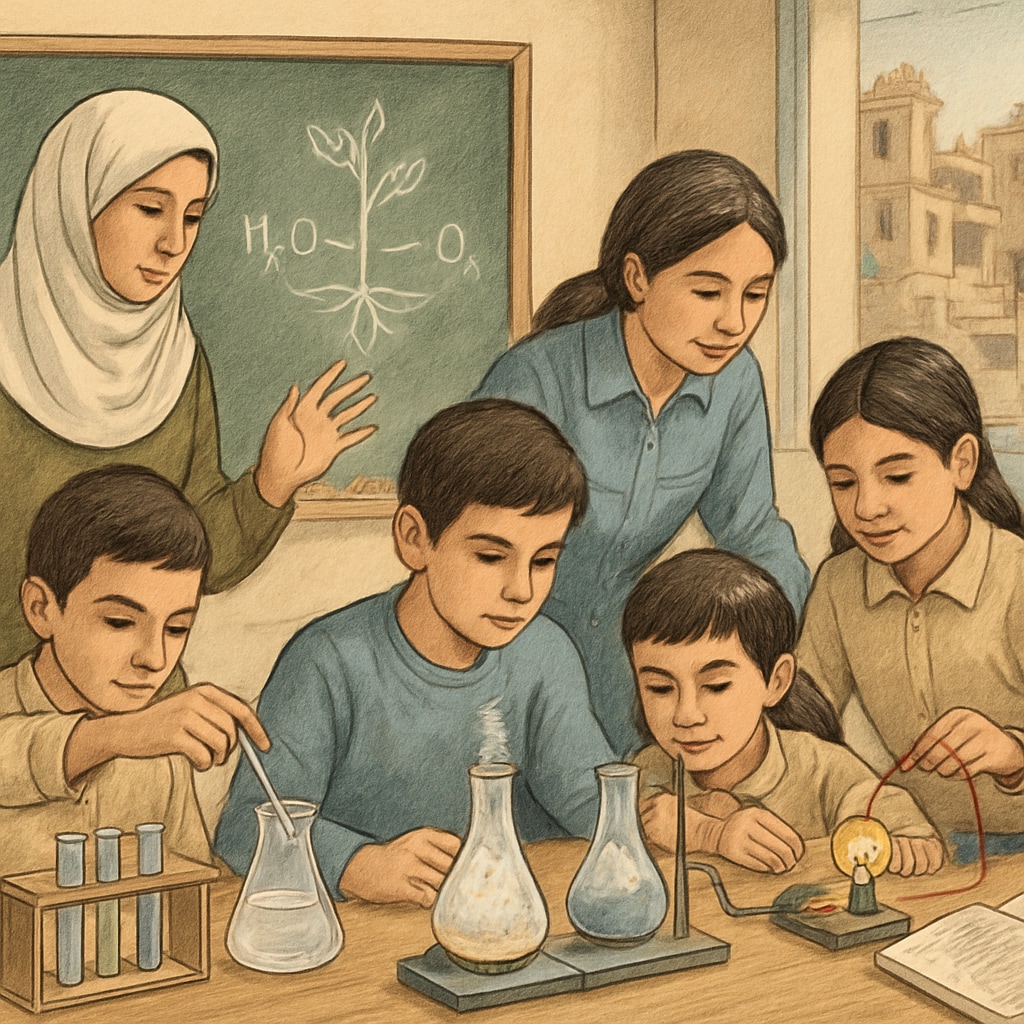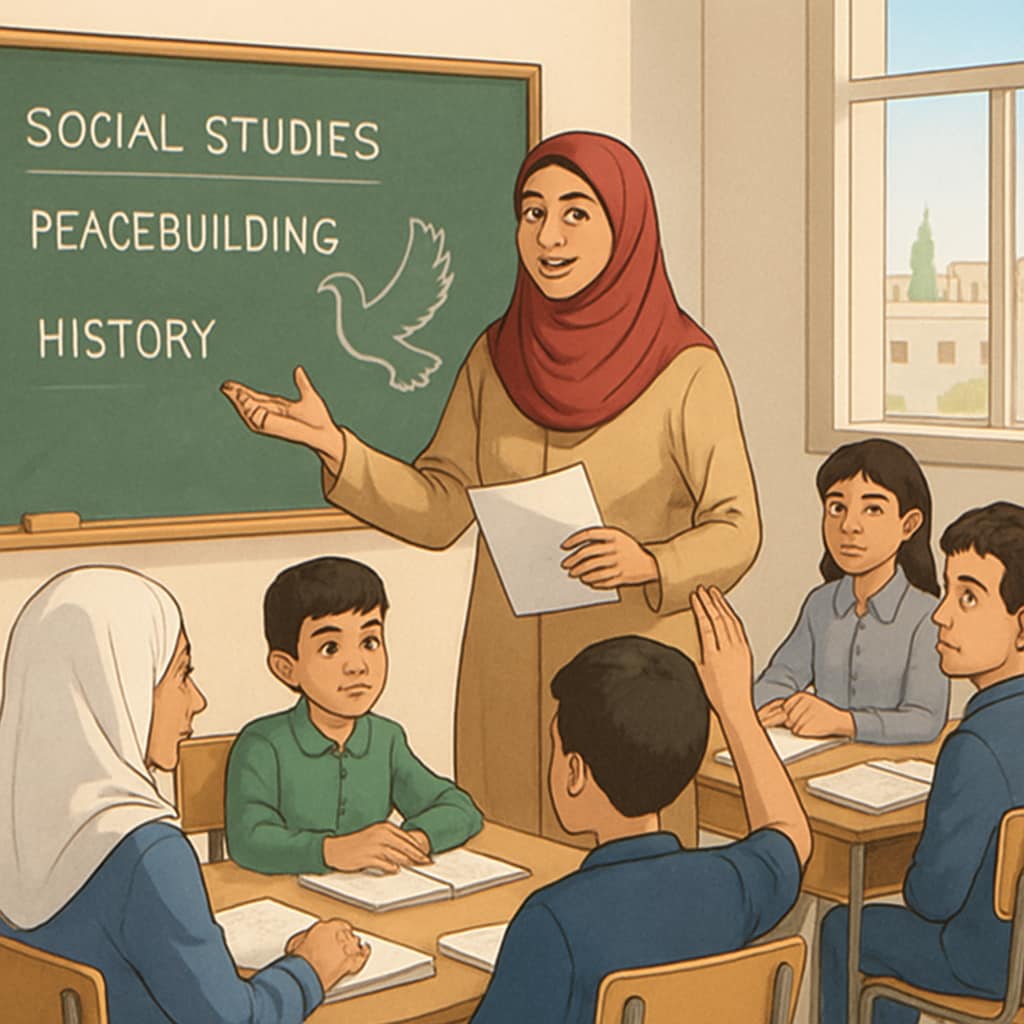Rebuilding Gaza’s education system is an urgent priority in the aftermath of prolonged conflict. Among the critical needs are well-structured curricula in science and social studies, which have the potential to empower the younger generation with knowledge while fostering critical thinking and empathy. Developing inclusive, objective, and locally relevant teaching frameworks can significantly contribute to long-term peace and sustainable development in the region.

The Challenges of Rebuilding Education in Gaza
Gaza’s schools face numerous challenges, including damaged infrastructure, lack of resources, and fragmented educational standards. These issues are compounded by the psychological impact of conflict on students and teachers, which affects both learning and teaching. Science and social studies, as pivotal subjects, require particular attention due to their role in shaping analytical skills and social awareness.
For example, science education helps students understand the natural world and equips them with problem-solving abilities, while social studies foster a sense of identity, history, and citizenship. However, the absence of updated and context-sensitive curricula often leaves these subjects underutilized in promoting holistic education.
Strategies for Developing Inclusive Science and Social Studies Curricula
To address these challenges, a structured approach to curriculum development is essential. Here are some key strategies:
- Community Involvement: Local educators, parents, and students should be engaged in the curriculum design process to ensure it reflects the region’s needs and values.
- Global Best Practices: Adopting and adapting international educational frameworks can raise the quality of education while maintaining local relevance.
- Focus on Critical Thinking: Both science and social studies curricula should prioritize fostering inquiry-based learning and problem-solving skills.
- Incorporating Peace Education: Social studies, in particular, can include modules on conflict resolution, empathy, and cooperation to cultivate a culture of peace.
For example, UNESCO’s guidelines on post-conflict education reconstruction provide a valuable resource for aligning educational goals with peacebuilding efforts (UNESCO on post-conflict education).

Implementing and Sustaining Quality Education
Developing curricula is only the first step. Effective implementation requires trained educators, access to teaching materials, and ongoing support for both students and teachers. International organizations and NGOs can play a significant role in providing training programs, funding, and educational resources. Additionally, monitoring and evaluation systems should be established to ensure the curricula remain effective and relevant over time.
For example, programs like UNICEF’s Education in Emergencies initiative offer insights into creating resilient education systems in conflict-affected regions (UNICEF’s Education in Emergencies).
Conclusion: Building a Foundation for Peace and Growth
Rebuilding Gaza’s education system, particularly through the development of science and social studies curricula, is a crucial step toward recovery and progress. By prioritizing inclusivity, critical thinking, and peace education, these curricula can empower the youth to envision and contribute to a brighter future. Collaborative efforts from local communities, educators, and international partners will be key to achieving this vision and fostering long-term stability in the region.
Ultimately, education is not just about academic achievement but also about building resilient communities capable of overcoming adversity. The steps taken today to rebuild Gaza’s education system will shape the leaders and peacemakers of tomorrow.


